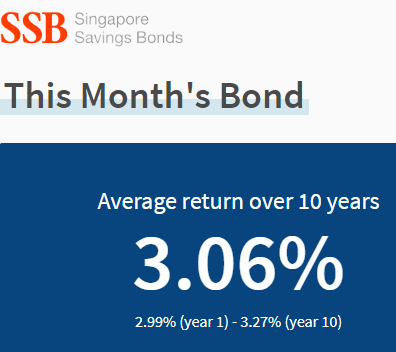 [/caption]
I believe everyone should buy insurance to cover his/her “worst case scenarios” and not just buy because it is likely to happen. In fact, your worst case scenarios are likely to be low probability events and hence, unlikely to occur. But because they are unlikely to occur, most people are unprepared for them (just when you think you are healthy). This causes the impact of such low probability events to have big detrimental effects. Analogous to betting where odds are involved, the payout for the outcome is the highest when the probability of happening is the lowest. If you are not insured against your worst, then you have the pay the most price in the end.
Defining the worst case scenarios
Worst case scenarios can be very subjective and differs from person to person, but there should be some similarities. Defining your worst case scenarios is equivalent to defining your needs, instead of your financial planner defining the needs for you.
For illustration purposes, here are my worst case scenarios:
Scenario 1 - I contracted major illness/disability such that I am not able to work and have to depend on family.
Scenario 2 - I died and my dependents’ financial future becomes uncertain.
Scenario 3 - As a single child, my parents contracted major illness/disability such that their medical costs become a toll on my finances.
Protection against the worst
After defining my worst case scenarios, I should find out what insurance policies are available for protection against such cases: Read more...
[/caption]
I believe everyone should buy insurance to cover his/her “worst case scenarios” and not just buy because it is likely to happen. In fact, your worst case scenarios are likely to be low probability events and hence, unlikely to occur. But because they are unlikely to occur, most people are unprepared for them (just when you think you are healthy). This causes the impact of such low probability events to have big detrimental effects. Analogous to betting where odds are involved, the payout for the outcome is the highest when the probability of happening is the lowest. If you are not insured against your worst, then you have the pay the most price in the end.
Defining the worst case scenarios
Worst case scenarios can be very subjective and differs from person to person, but there should be some similarities. Defining your worst case scenarios is equivalent to defining your needs, instead of your financial planner defining the needs for you.
For illustration purposes, here are my worst case scenarios:
Scenario 1 - I contracted major illness/disability such that I am not able to work and have to depend on family.
Scenario 2 - I died and my dependents’ financial future becomes uncertain.
Scenario 3 - As a single child, my parents contracted major illness/disability such that their medical costs become a toll on my finances.
Protection against the worst
After defining my worst case scenarios, I should find out what insurance policies are available for protection against such cases: Read more...[caption id="attachment_3296" align="alignright" width="150" caption="Photo by The Wandering Angel"] [/caption]
I believe everyone should buy insurance to cover his/her “worst case scenarios” and not just buy because it is likely to happen. In fact, your worst case scenarios are likely to be low probability events and hence, unlikely to occur. But because they are unlikely to occur, most people are unprepared for them (just when you think you are healthy). This causes the impact of such low probability events to have big detrimental effects. Analogous to betting where odds are involved, the payout for the outcome is the highest when the probability of happening is the lowest. If you are not insured against your worst, then you have the pay the most price in the end.
Defining the worst case scenarios
Worst case scenarios can be very subjective and differs from person to person, but there should be some similarities. Defining your worst case scenarios is equivalent to defining your needs, instead of your financial planner defining the needs for you.
For illustration purposes, here are my worst case scenarios:
Scenario 1 - I contracted major illness/disability such that I am not able to work and have to depend on family.
Scenario 2 - I died and my dependents’ financial future becomes uncertain.
Scenario 3 - As a single child, my parents contracted major illness/disability such that their medical costs become a toll on my finances.
Protection against the worst
After defining my worst case scenarios, I should find out what insurance policies are available for protection against such cases: Read more...
[/caption]
I believe everyone should buy insurance to cover his/her “worst case scenarios” and not just buy because it is likely to happen. In fact, your worst case scenarios are likely to be low probability events and hence, unlikely to occur. But because they are unlikely to occur, most people are unprepared for them (just when you think you are healthy). This causes the impact of such low probability events to have big detrimental effects. Analogous to betting where odds are involved, the payout for the outcome is the highest when the probability of happening is the lowest. If you are not insured against your worst, then you have the pay the most price in the end.
Defining the worst case scenarios
Worst case scenarios can be very subjective and differs from person to person, but there should be some similarities. Defining your worst case scenarios is equivalent to defining your needs, instead of your financial planner defining the needs for you.
For illustration purposes, here are my worst case scenarios:
Scenario 1 - I contracted major illness/disability such that I am not able to work and have to depend on family.
Scenario 2 - I died and my dependents’ financial future becomes uncertain.
Scenario 3 - As a single child, my parents contracted major illness/disability such that their medical costs become a toll on my finances.
Protection against the worst
After defining my worst case scenarios, I should find out what insurance policies are available for protection against such cases: Read more...
 [/caption]
I believe everyone should buy insurance to cover his/her “worst case scenarios” and not just buy because it is likely to happen. In fact, your worst case scenarios are likely to be low probability events and hence, unlikely to occur. But because they are unlikely to occur, most people are unprepared for them (just when you think you are healthy). This causes the impact of such low probability events to have big detrimental effects. Analogous to betting where odds are involved, the payout for the outcome is the highest when the probability of happening is the lowest. If you are not insured against your worst, then you have the pay the most price in the end.
Defining the worst case scenarios
Worst case scenarios can be very subjective and differs from person to person, but there should be some similarities. Defining your worst case scenarios is equivalent to defining your needs, instead of your financial planner defining the needs for you.
For illustration purposes, here are my worst case scenarios:
Scenario 1 - I contracted major illness/disability such that I am not able to work and have to depend on family.
Scenario 2 - I died and my dependents’ financial future becomes uncertain.
Scenario 3 - As a single child, my parents contracted major illness/disability such that their medical costs become a toll on my finances.
Protection against the worst
After defining my worst case scenarios, I should find out what insurance policies are available for protection against such cases: Read more...
[/caption]
I believe everyone should buy insurance to cover his/her “worst case scenarios” and not just buy because it is likely to happen. In fact, your worst case scenarios are likely to be low probability events and hence, unlikely to occur. But because they are unlikely to occur, most people are unprepared for them (just when you think you are healthy). This causes the impact of such low probability events to have big detrimental effects. Analogous to betting where odds are involved, the payout for the outcome is the highest when the probability of happening is the lowest. If you are not insured against your worst, then you have the pay the most price in the end.
Defining the worst case scenarios
Worst case scenarios can be very subjective and differs from person to person, but there should be some similarities. Defining your worst case scenarios is equivalent to defining your needs, instead of your financial planner defining the needs for you.
For illustration purposes, here are my worst case scenarios:
Scenario 1 - I contracted major illness/disability such that I am not able to work and have to depend on family.
Scenario 2 - I died and my dependents’ financial future becomes uncertain.
Scenario 3 - As a single child, my parents contracted major illness/disability such that their medical costs become a toll on my finances.
Protection against the worst
After defining my worst case scenarios, I should find out what insurance policies are available for protection against such cases: Read more...





